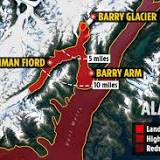Researchers develop terahertz biosensor to detect skin cancer for early diagnosis

Results from the study could also be used for other forms of cancer and diseases
Researchers from the University of Glasgow and Queen Mary University of London have developed a new biosensor using terahertz (THz) waves that can detect skin cancer with strong sensitivity.
Published in the IEEE Transactions on Biomedical Engineering, the study results could pave the way for easier and earlier diagnoses of skin cancer and potentially other cancers and diseases.
Affecting one in four men and one in five women at least once in their lifetime in the UK, skin cancer is an abnormal growth of skin cells that involves three major types: basal cell carcinoma (BCC), squamous cell carcinoma and melanoma.
Most skin cancer is often detected using traditional methods that involve expensive, time-consuming CT and PET scans, and invasive higher-frequency technology.
After exploring the potential of THz metasurfaces, researchers designed the biosensor to detect subtle changes in cell properties, featuring small, asymmetric resonators on a flexible substrate, to analyse a combination of parameters including resonance frequency, transmission magnitude and a value called Full Width at Half Maximum.
The biosensor provides a more in-depth picture of the tissue to allow more accurate differentiation between healthy and cancerous cells, as well as measuring the malignancy degree of the tissues.
Researchers revealed that the biosensor successfully differentiated between normal skin cells and BCC cells, even at different concentrations.
Professor Qammer Abbasi, co-director for communication sensing and imaging hub at the University of Glasgow’s James Watt School of Engineering, said: “Integrating [THz] imaging technology into this type of flexible, portable, reusable sensor could make cancer screening a quicker and more comfortable procedure for patients.
“The implications of this study extend far beyond skin cancer detection,” said Dr Shohreh Nourinovin, postdoctoral research association, Queen Mary’s School of Electronic Engineering and Computer Science.
She added: “This technology could be used for early detection of various cancers and other diseases, like Alzheimer’s, with potential applications in resource-limited settings due to its portability and affordability.”


 United Kingdom
United Kingdom Argentina
Argentina  Australia
Australia  Austria
Austria  Brazil
Brazil  Canada
Canada  Germany
Germany  Ireland
Ireland  Italy
Italy  Malaysia
Malaysia  Mexico
Mexico  New Zealand
New Zealand  Poland
Poland  South Africa
South Africa  United States
United States 














